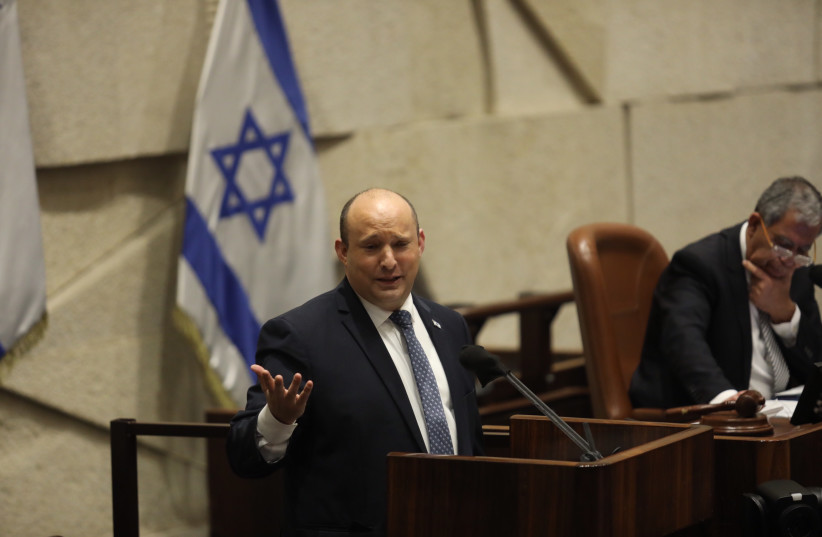Prime Minister Naftali Bennett reiterated the government's warning to Israeli citizens in Ukraine, at Sunday's cabinet meeting.
"This is not the time to say 'it'll be OK,'" Bennett said. "It's better to be inconvenienced now than to be in real danger later. Come home."
Bennett said that "this is a sensitive time for the world's stability," but would not predict what will happen between Russia and Ukraine.
Bennett commended the Foreign Ministry's efforts to help Israelis return from Ukraine.
The Israeli Embassy in Kyiv opened for four hours on Sunday, a day on which it usually closed, in order to facilitate more Israelis’ departure.
Despite the efforts and the government’s entreaties in the past week, only about 3,000 out of an estimated 12,000 Israelis left Ukraine.
"There are many thousands still there at a time when some of the airlines are canceling flights," Bennett lamented.

Multiple explosions were heard on Sunday in the center of the separatist-held city of Donetsk in eastern Ukraine, a Reuters witness said.
A loudspeaker in the area asked citizens to exercise caution. The origin of the explosions was not clear.
According to an official statement by the Donetsk People's Republic Militia, Ukraine has opened fire 82 times on the territory of rebel-controlled areas with the use of mortars and artillery cannons.
This comes just days after artillery shelling was heard near Donetsk airport and Elenovka, a village in the Donetsk province.
Fueling Russia-West tensions over Ukraine, the rebels and Ukrainian government forces accused each other of violating ceasefire agreements on Thursday and using heavy weaponry including mortars and artillery.
On Saturday, Ukrainian President Volodymyr Zelensky urged Russian President Vladimir Putin to meet him for talks to deescalate tensions as rumors of an impending invasion continue to grow, the Associated Press reported.
This is a developing story.
